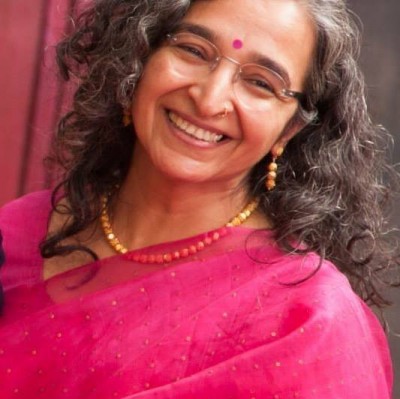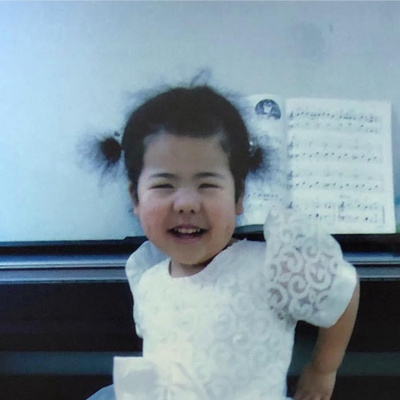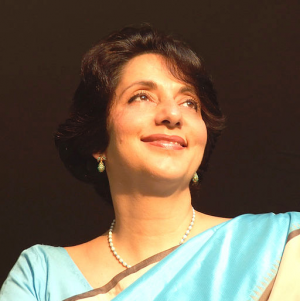Anju Dubey Pandey speaks out against a culture of silence

Photo Credit: Creative Commons
February 4, 2016
“We have the capacity to change the rest of the world, but not India,” a male Model United Nations delegate replied in response to ILMUNC guest speaker, Anju Dubey Pandey’s question of whether an individual can make a difference in society. Anju Pandey, now Programme Officer of UN Women India, responded to his comment by sharing her story of how she helped tackle the culture of silence in India’s conservative society, which underpins gender-based violence. Her speech proved to her audience that an individual has the power to create change.
At the start of her speech, Anju Pandey recalled her first encounter with gender-based violence. A college student at the time, she was welcomed by two unexpected visitors–a small girl with tattered clothes and a sleep-deprived young man. They had recently crossed the border to India after escaping a Nepalese brothel. A nervous Anju Pandey, who knew that she was breaking dorm rules, allowed the young girl to temporarily stay at her dormitory. Although the man promised to, he never returned. Anju Pandey knew that she would be severely punished if the girl continued to stay, but could not kick her out, as the girl only spoke broken Hindi. On the fourteenth day, Anju Pandey helped her new friend move into a local support service community. This incident opened young Anju’s eyes to the culture of silence that shrouded India.
The culture of silence in India was first spotlighted when news of the 2012 Delhi Gang Rape rippled across the world, triggering international criticism of India’s inability to address violence. The culture of silence has been preventing women from reporting gender-based violence since the early 1800s.
As men consider themselves superior to women in India, they wrongfully believe they possess the right to be authoritative and aggressive towards women. On the other hand, women believe they lack the power to stand up and speak for themselves, providing attackers justification to continue gender-based violence.
In addition, the lack of female police, limited NGOs, the arduous process of court trials, and the lack of sex education in the school curriculum lead men to “eve tease” women on the streets. While Delhi responded with disappointing yet expected silence in the aftermath of the 2012 Delhi gang rape, Anju spoke out. She and her friends decided that Delhi should be filled with the culture of integrity rather than the culture of compliance. Coining themselves as the Indian Women Press Corporation, they partnered with UNICEF and UN Women to take forward the public campaign, “UNiTE to End Violence against Women and Girls.” Additionally, as part of UNICEF India, they also launched “Time to Sound the Red Siren”. During the campaign’s early years, they would crowd popular spots like the India gate and hand out flyers and make announcements, specially focusing on sexual violence against young girls.
The 2016 theme color for the Time to Sound the Red Siren campaign is orange, which also constitutes the proud colors of India’s flag. According to Anju Pandey, this color was chosen to reflect the hope for change.
When asked on the power of campaigns to change such a deeply rooted culture of silence, Anju Pandey echoed the UN Women’s aims that “heightened public awareness can lead to increased dialogue, support the transformation of attitudes and reinforce the idea that violence can be prevented by highlighting successful violence prevention efforts and movements at all levels, with a particular focus on national and local initiatives.”
Anju Pandey mentioned that we can start to “dent” the deeply fixated culture of silence by questioning ourselves, “What is it we are learning? How are we growing up?” For Anju Pandey, these questions were key to promoting social awareness through Indian Women Press Corporation’s public campaigns and encouraging the ministers to incorporate sex education in the Delhi school curriculum. She claims that the smile on her face is becoming bigger as she begins to read less about gender-based violence cases.
Anju Pandey’s story is one of many examples that proves that an individual can make a difference, at least within their community. The culture of silence is one of many attitudes that must be reversed in Delhi. Anju Pandey concluded her speech by addressing the hundreds of students dressed in formal wear and said that it depends on the future generation to “be the change they wanted to see”.















































